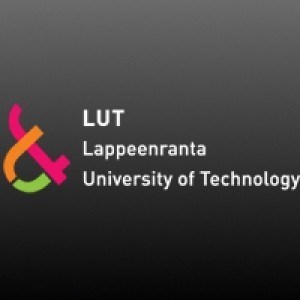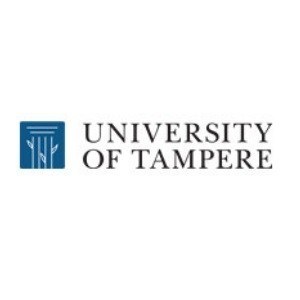Photos of university / #universityoflimerick
Development (Master of Science) at the University of Limerick is a comprehensive postgraduate program designed to equip students with the essential knowledge and skills required for effective development practice in a variety of contexts. This programme focuses on sustainable development, policy analysis, project management, and capacity building, preparing graduates to address complex global and local development challenges. Throughout the course, students will explore key themes such as social innovation, economic development, environmental sustainability, and governance, gaining a multidisciplinary perspective that is vital in the development sector. The curriculum combines theoretical frameworks with practical application, ensuring that students can implement innovative solutions and manage development projects efficiently. Emphasis is placed on critical thinking, research skills, and the ability to evaluate developmental strategies critically. The program particularly benefits those seeking careers in international organizations, NGOs, government agencies, or development consulting firms. The University of Limerick provides a stimulating learning environment, incorporating both interactive lectures and real-world case studies, often collaborating with industry partners and development agencies. Students also have opportunities for internships and fieldwork, which enhance their practical understanding and professional network. The program team includes experienced academics and practitioners dedicated to mentoring students and fostering an environment of learning and professional growth. Graduates of this program are well-prepared to lead initiatives that promote social equity, economic growth, and environmental sustainability, making a positive impact on communities locally and globally. Whether you come from a social sciences background or a related discipline, the Development MSc at UL offers a pathway to a rewarding career dedicated to improving societal well-being through strategic development initiatives.
The MSc in Development at the University of Limerick is a comprehensive postgraduate program designed to equip students with a deep understanding of the complex processes of development across local, national, and global contexts. This program aims to prepare graduates to contribute effectively to sustainable development initiatives, policy formulation, and implementation in diverse settings. The curriculum covers a broad range of topics, including developmental economics, social development, environmental sustainability, policy analysis, and project management. Students will explore the theoretical foundations of development studies alongside practical approaches to addressing development challenges.
Throughout the course, students engage with multidisciplinary perspectives, emphasizing critical thinking, analytical skills, and practical experience. The program incorporates case studies, fieldwork, and interactive seminars to foster experiential learning. Students will develop their ability to evaluate development policies and programs critically, design sustainable development strategies, and implement complex projects in various cultural and socio-economic environments. The program also emphasizes the importance of ethical considerations, social justice, and community participation in development processes.
In addition to core modules, students have the opportunity to specialize in areas such as sustainable development, international development, or social policy. The program encourages collaboration with local, national, and international development organizations, providing students with valuable networking and internship opportunities. Graduates of the MSc in Development will be well-prepared for careers in development agencies, NGOs, government departments, international organizations, research institutes, and consulting firms.
The University of Limerick’s state-of-the-art facilities, experienced faculty, and vibrant student community create an enriching learning environment. The program is tailored for individuals passionate about making a meaningful impact in development-related fields and seeking to acquire the knowledge and skills necessary for effective action in a rapidly changing world. Whether you aspire to influence policy, lead development projects, or conduct impactful research, this program offers a solid foundation to advance your career in development work.
Prerequisites for the Development program at the University of Limerick typically include a strong academic background in relevant fields such as social sciences, environmental sciences, or international development. Applicants are generally expected to hold a minimum of a second-class honours degree or equivalent in a discipline related to development studies, such as economics, political science, sociology, or geography. Additionally, relevant work or volunteer experience in development contexts may be considered advantageous during the admission process. Proof of English language proficiency, such as a IELTS score of 6.5 or equivalent, is usually required for non-native speakers.
The program may also favor applicants demonstrating a keen interest in international development, social justice, sustainability, and global issues through personal statements or interview processes. Some courses may require prior knowledge of research methods or data analysis, with students encouraged to have foundational skills in quantitative and qualitative research techniques. Participation in relevant workshops, seminars, or prior coursework related to development theory, policy analysis, or project management can strengthen an application.
For admission consideration, applicants are often required to submit official transcripts, references from academic or professional sources, and a detailed CV outlining relevant experience. The program aims to attract diverse students from various backgrounds, fostering an inclusive learning environment. Prospective students are advised to check specific entry requirements for the year of application, as criteria may be updated or vary slightly between intakes.
The program may include foundation modules designed to equip students with core theories and concepts in development studies, followed by specialized electives that allow for deeper engagement with topics such as poverty alleviation, sustainable development, or international aid. Successful completion of the program typically requires passing coursework, participating in practical projects or internships, and completing a dissertation or research project. Overall, candidates should demonstrate academic ability, motivation for a career in development, and a commitment to contributing positively to global development initiatives.
Funding for the Development degree program at the University of Limerick is available through a variety of channels to support both domestic and international students. The university offers a range of scholarships and bursaries aimed at students pursuing this program, which can significantly offset tuition fees and living expenses. Scholarships are often awarded based on academic merit, financial need, or specific criteria such as regional origin or demographic factors. Additionally, students may be eligible for government funding schemes, including the Irish Grant Scheme (for Irish and EU students), which provides financial assistance based on household income and other eligibility criteria.
For non-EU international students, financial support options are more limited but may include merit-based scholarships offered directly by the university or external funding from sponsors or governmental agencies in their home countries. The University of Limerick also provides guidance on part-time work opportunities, which students can undertake during their studies to contribute toward living expenses. These arrangements are highly regulated in Ireland, with restrictions on working hours for international students during academic terms.
Students are encouraged to explore external funding options such as bank loans, sponsorships, or scholarships from their home countries that support international students studying abroad. The university’s Financial Aid Office offers comprehensive advice and application assistance to students seeking funding options, ensuring they are aware of all available resources. Furthermore, some students may qualify for special funding programs targeted at specific groups, such as mature students or students from disadvantaged backgrounds.
Tuition fees for the Development program vary depending on the student’s residency status and whether they are classified as domestic or international students. Domestic students benefit from lower fees due to government subsidies, while international students pay higher tuition rates, which can be financed through individual savings, scholarships, or loans. The university also provides detailed information about installment payment plans, allowing students to pay their tuition fees in manageable instalments over the academic year.
Overall, the financing of studies in the Development program at the University of Limerick is supported through a combination of university-specific scholarships, government grants, external funding sources, work opportunities, and flexible payment arrangements. Prospective students are advised to contact the university’s Financial Aid Office directly for personalized guidance tailored to their financial circumstances and to ensure they are aware of all potential funding avenues available for completing their studies effectively.
The MSc in Development at the University of Limerick is a comprehensive postgraduate program designed to equip students with a deep understanding of development theories, practices, and policies. The program covers a broad range of topics including sustainable development, international aid, economic development, social development, and environmental considerations, preparing graduates for careers in development agencies, NGOs, government departments, and international organizations. The curriculum integrates both theoretical frameworks and practical applications, enabling students to analyze complex development issues critically and develop innovative solutions. Students have the opportunity to engage in multidisciplinary learning, drawing from fields such as economics, sociology, politics, and environmental science.
The program emphasizes experiential learning through case studies, project work, and field visits, providing students with real-world insights and hands-on experience in development work. It aims to foster skills in research, policy analysis, project management, and intercultural communication. The university's strong links with development organizations and agencies offer students networking opportunities and access to internships, which are integral parts of the program.
The MSc in Development also encourages reflective practice and ethical considerations in development initiatives, promoting sustainable and inclusive approaches. The program typically accepts students from diverse academic backgrounds, providing foundational modules for those new to development while offering advanced coursework for those with prior experience. Alongside coursework, students undertake a dissertation or research project, allowing for specialization in areas of interest and contributing to academic and practical advancements in development studies.
Overall, the MSc in Development from the University of Limerick aims to develop globally minded, critically aware professionals capable of contributing effectively to development initiatives and policies worldwide. The program benefits from the university's excellent teaching facilities, research centers, and a vibrant student community dedicated to global development issues. Graduates are well-prepared to pursue careers in international development, policy analysis, project management, research, and advocacy, making significant contributions to creating sustainable and equitable development outcomes worldwide.





